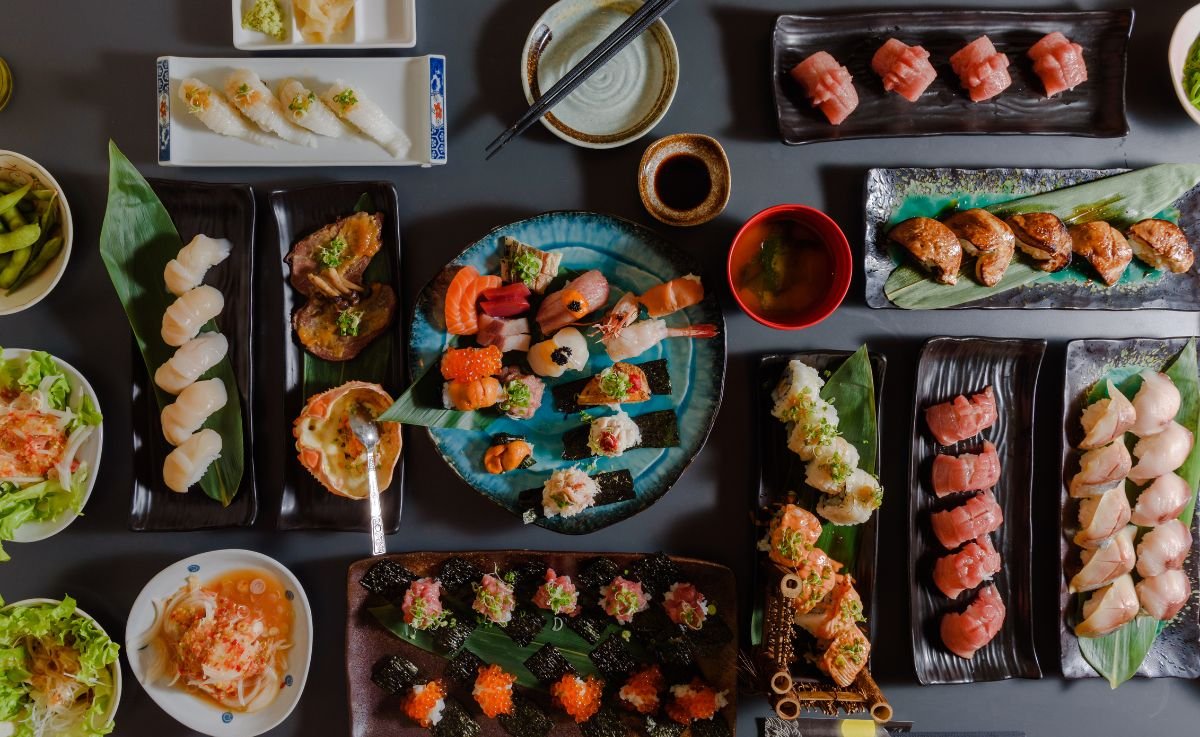African grocery stores are vibrant hubs that offer a rich tapestry of flavors and cultural significance. These stores play a crucial role in both providing essential ingredients for traditional African cuisine and serving as community centers where cultural connections thrive.
Exploring the Delights of an African Grocery Store
What You Can Find in an African Grocery Store
Spices and Seasonings
African grocery stores are renowned for their extensive array of spices and seasonings, each contributing distinct flavors and aromas to dishes. From the fiery berbere of Ethiopia to the aromatic suya spice blend of West Africa, these spices not only enhance the taste of food but also reflect the diverse culinary traditions across the continent. The availability of such spices allows individuals to recreate authentic African dishes in their homes, fostering a deeper appreciation for African cuisine worldwide.
Fresh Produce
Freshness is paramount in African cuisine, and African grocery stores excel in offering a variety of fresh fruits and vegetables that are essential in traditional cooking. From exotic fruits like baobab and mango to staple vegetables like cassava leaves and okra, these stores ensure that customers can access ingredients integral to preparing authentic African meals. The quality and freshness of produce in these stores not only support healthier eating habits but also contribute to preserving the authenticity of African culinary traditions.
Grains and Legumes
Staple foods such as millet, sorghum, and various types of beans and lentils are cornerstones of African diets, providing essential nutrients and sustenance. African grocery stores stock a wide range of these grains and legumes, catering to the dietary needs and preferences of diverse communities. These ingredients are not only versatile in cooking but also play a significant role in cultural practices and rituals, making them indispensable in African households and beyond.
Unique Products
Snacks and Beverages
African grocery stores offer a delightful selection of snacks and beverages that showcase the continent’s rich culinary heritage. Indigenous snacks like chin chin, a crunchy pastry popular in West Africa, and beverages such as palm wine, a traditional drink known for its cultural significance, provide customers with unique taste experiences. These products not only satisfy cravings but also serve as cultural ambassadors, introducing unfamiliar flavors to a broader audience and fostering appreciation for African gastronomy.
Frozen Foods
Frozen foods in African grocery stores often include pre-packaged meals that offer convenience without compromising on authenticity. These meals range from jollof rice to fufu with soup, providing customers with quick and easy options for enjoying traditional African dishes at home. The availability of frozen foods also caters to the diaspora community and enthusiasts of African cuisine worldwide, ensuring that cultural culinary traditions remain accessible and celebrated across borders.
Cultural Significance and Community Connection
African grocery stores hold profound cultural african grocery store significance beyond their role as purveyors of food and ingredients. They serve as vital community hubs where individuals gather to connect, share stories, and celebrate cultural heritage. These stores play a crucial role in preserving and promoting African identity, providing a space where traditions are passed down through generations and cultural pride is nurtured.
Role in Preserving Cultural Identity
African grocery stores play a pivotal role in preserving cultural identity by offering products that reflect the diversity and richness of African heritage. Whether through traditional ingredients, handmade crafts, or cultural events, these stores actively contribute to maintaining and celebrating African customs and values. By supporting these establishments, individuals not only access authentic goods but also contribute to the preservation of cultural heritage for future generations.
Gathering Place for the Community
Beyond shopping, African grocery stores serve as gathering places where community members come together to socialize, exchange news, and forge connections. These stores often host events such as cooking demonstrations, cultural festivals, and community meetings that strengthen bonds and foster a sense of belonging. By providing a physical space for communal interaction, these stores enrich the social fabric of neighborhoods and promote cross-cultural understanding and unity.
Shopping Tips
Navigating an African grocery store can be an enriching experience, offering insights into new flavors and culinary traditions. Here are some tips to enhance your shopping experience and make the most of your visit to an African grocery store:
Understanding Unfamiliar Products
Exploring unfamiliar products in an African grocery store can be both exciting and educational. Take the time to ask questions, read labels, and learn about the origins and uses of different ingredients. Many stores have knowledgeable staff who can offer guidance on how to incorporate these products into your cooking and appreciate their cultural significance.
Importance of Supporting Local Businesses
Supporting local African grocery stores not only ensures access to authentic products but also contributes to the economic vitality of communities. By choosing to shop at these establishments, you help sustain small businesses, create job opportunities, and preserve cultural diversity. Your patronage plays a crucial role in maintaining the availability of diverse and high-quality products while promoting cultural exchange and understanding.
Etiquette and Cultural Awareness
When shopping at an African grocery store, practicing cultural sensitivity and respect is essential. Be mindful of cultural norms, such as greeting store staff respectfully and handling products with care. Embrace the opportunity to learn about different customs and traditions, and approach interactions with openness and curiosity. Your respectful attitude fosters positive relationships and enriches your shopping experience, creating a welcoming environment for all customers and staff alike.
Conclusion:
African grocery stores are more than just places to purchase food—they are vibrant cultural institutions that celebrate diversity, foster community connections, and preserve heritage. By exploring the diverse offerings of these stores, supporting local businesses, and embracing cultural experiences, individuals can cultivate a deeper appreciation for African culinary traditions and contribute to the rich tapestry of global gastronomy. Whether you’re seeking traditional spices, fresh produce, or a taste of authentic cuisine, African grocery stores offer a gateway to discovering the delights of Africa’s culinary landscape.











